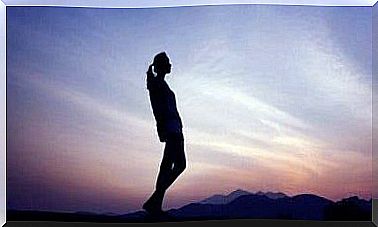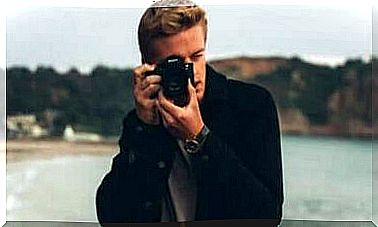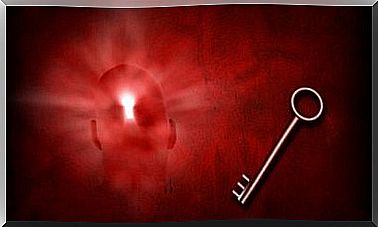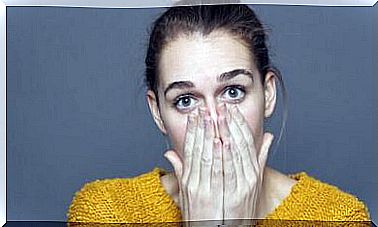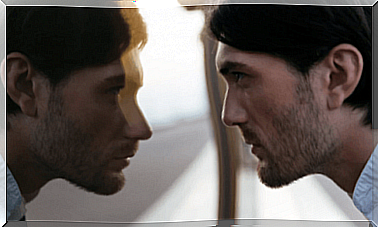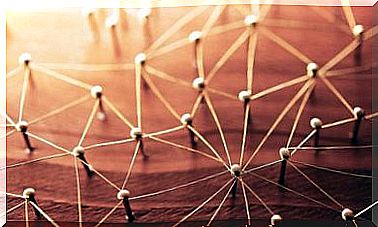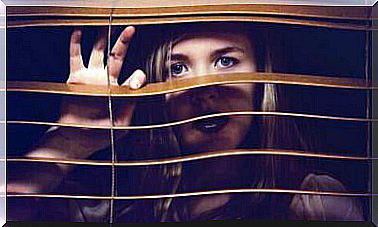Self-reflection: The Key To Personal Growth And Emotional Freedom
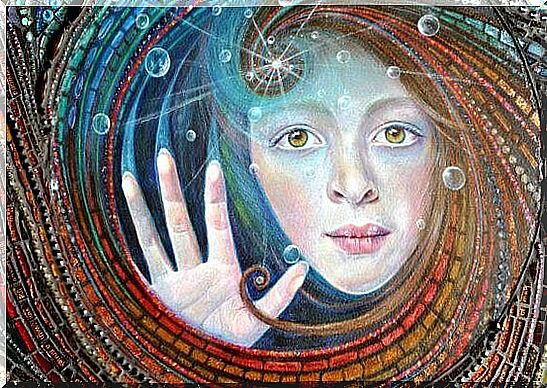
Self-reflection invites us to free ourselves from security and to question rigid ideas. In turn, it reminds us that we are free beings, people with the ability to be independent when we make decisions. Few dimensions of personal growth provide such an intimate and full connection with one’s inner self-confidence. Self-reflection helps us to ask ourselves what we really want out of life and what it is that gives us happiness.
No one will be surprised that many of the personal development gurus call self-reflective consciousness “the art forgotten by psychology.” This is for a very simple reason. Our society has reached a point where it is much easier to blame bad luck or other people for what is happening to us. Instead, we should have the courage or the psychological capacity to realize that much of what happens to us is a consequence of our actions, whether it is possible to avoid them or not.
If I feel miserable, it’s because my partner does not know how to make me happy. The reason I do not have any friends I can trust is that everyone is selfish. If I fail an exam over and over again, it’s because my teacher does not like me. If I just can not free myself from misfortune and frustration for a single day, it is because the world does not appreciate what I am worth.
We have all heard people say that we must always find a cause for everything that happens or look for someone to blame. We may have heard this from friends, relatives, a classmate or at work. Dysfunctional problems in families can be reduced until one loses the art of self-reflection. We can also trace the collapse of relationships and the conflicts that arise from losing this art.
If a person is not able to ask questions to specific situations, they will feel very dissatisfied. If the same person is unable to understand their own feelings, learn from mistakes or take responsibility for their own actions and the consequences they have, they will live in a mental state where this lack of thinking will generate only one result: unhappiness.

Self-reflection, a trip to our inner self to achieve well-being
Many of us have at one time or another said to ourselves, “I just have to go.” “I have to get away, I have to cross my own personal boundaries to get to know myself.” Little by little, we realize that we do not need to change our physical location to find the true version of ourselves. The truth is that wherever we go, we will always remain the same. Knowledge is found in us and comes directly from self-reflection.
In the same way, it is good to remember that this ability is not learned overnight. It is a process of growth where we can see our reality through different windows. Where we can ask ourselves challenging questions that open our minds. This will help us to question everything around us, and even ourselves. Self-reflection is the engine of personal growth, a journey for which we all have a ticket.
And yet, as strange as it may seem, we do not always use it as well.
Self-reflection is the key to success
When we talk about “success”, we do not refer exclusively to the fact that we reach a privileged position in society. Success is above all well-being, and is our ability to be creators of our own happiness in any area of our lives. According to Daniel Goleman’s research, self-reflection is crucial for us to be able to develop an appropriate emotional intelligence.
We need to understand what psychologists define as “self-reflective consciousness.” It is actually a “metacognitive” ability that we can all train and strengthen. Above all, it means being able to think and reflect on one’s own mental and emotional processes in order to understand and master them.
This type of person is able to establish a healthy and useful internal dialogue to discover faults, shortcomings, insecurities and unrest, to heal and grow into a better person every day.
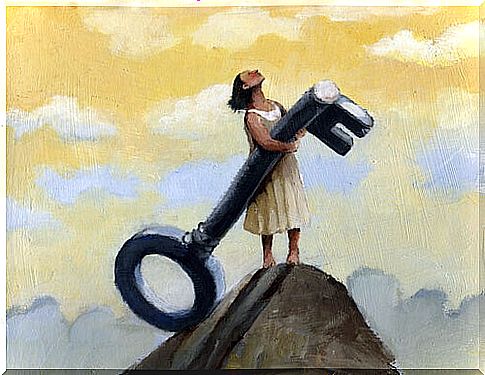
On the other hand, it is worth remembering what Emmanuel Kant once said in The Critique of Pure Reason . For this Königsberg philosopher, the outer, that which surrounds us, is in fact the reflection of our inner self. And so, if our inner image is characterized by low self-esteem, rigid thinking and a non-existent ability for self-reflection, then all these negative qualities will make us see the outside world as oppressive, gray and without anything to offer us.
Keys to developing good self-reflection
This should be more than a purpose, it should be a necessity. Developing good self-reflection is a daily goal where we should invest effort and willpower to become what we want: free people. We could see it as a rebirth, as an awakening to consciousness, an illumination or an “insight”, similar to what we learned in the Matrix movie. We may find that we are not obligated to constantly please other people. We have all been given a voice and the right tools to be what we want. To achieve this, we can work in the following areas:
Immerse yourself in your education, know your family history
To get to know ourselves, a good alternative is to examine our roots. Sometimes a certain kind of upbringing from our parents or a certain type of education determines what we are now and even how we see ourselves.
2. Understand your needs, motivations and feelings
People have social impulses. We need intimacy, a desire to belong to a certain social group, and to achieve certain goals.
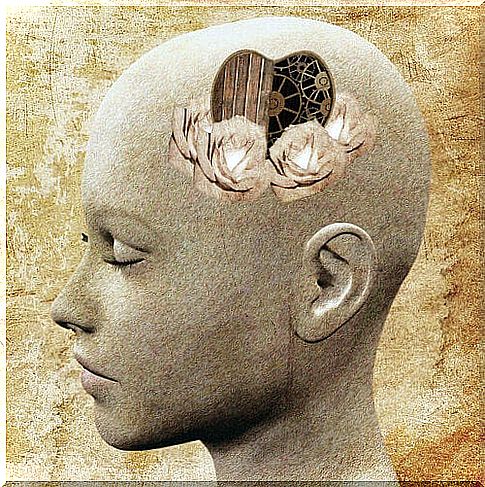
3. Understand your defense mechanisms
Our defense mechanisms are activated when our identity is threatened or when we are exposed to painful information about ourselves. Being aware of what causes these reactions and what defensive strategies we normally use will no doubt provide us with objective information about our deepest fears, shortcomings and needs.
4. Dive into your strengths and weaknesses
People are a compendium of greatness and weakness, virtues and shortcomings, light and shadows. Being aware of each of these dimensions and diving into them will undoubtedly provide us with an important tool for working on our self-reflection.
5. What are your purposes in life?
A life without purpose is just an existence. A mind without a goal does not succeed, is not happy, and lacks motivation and reasons to get up every morning. Let us make a list of the purposes that define our lives in this present time. Let us dive into why they are so important to us and what we do to achieve them and make them ours.
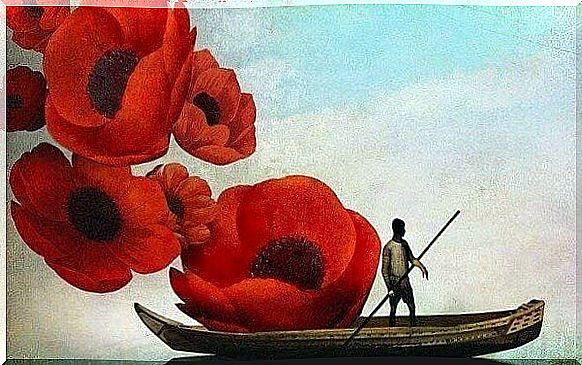
6. Be aware of the “cultural and social bubble” that surrounds you
Self-reflection has no meaning or purpose if we do not use it with a critical perspective. How am I affected by the community I live in? Am I a slave to fashion? Do I worry a lot about what people will think of me? Do I have to prioritize fitting in rather than following my real desires?
7. Make a daily habit of self-reflection
We should set aside at least half an hour a day to practice self-reflection. Let us focus on the important things in life, on our emotional and mental states, on what surrounds us. Let us practice attention, keep a diary, walk, paint or be quiet for quite some time in a quiet place.
Finally, let’s make self-reflection a conscious habit where we dare to be a little more free every day. Let us put aside superficiality, fear and lukewarmness in our comfort zone. And let us develop a true well-being where we can find ourselves again. Where we can find the person we have often neglected and whose hand we have let go of far too often.
Bibliography
Genie, Daniel (2017). “Triple Focus”. Zeta PocketDyer.
Wayne (2010). “Your wrong areas” DeBolsillo.
Jung, Carl (2010). “Memories, dreams, thoughts” New Collection.
